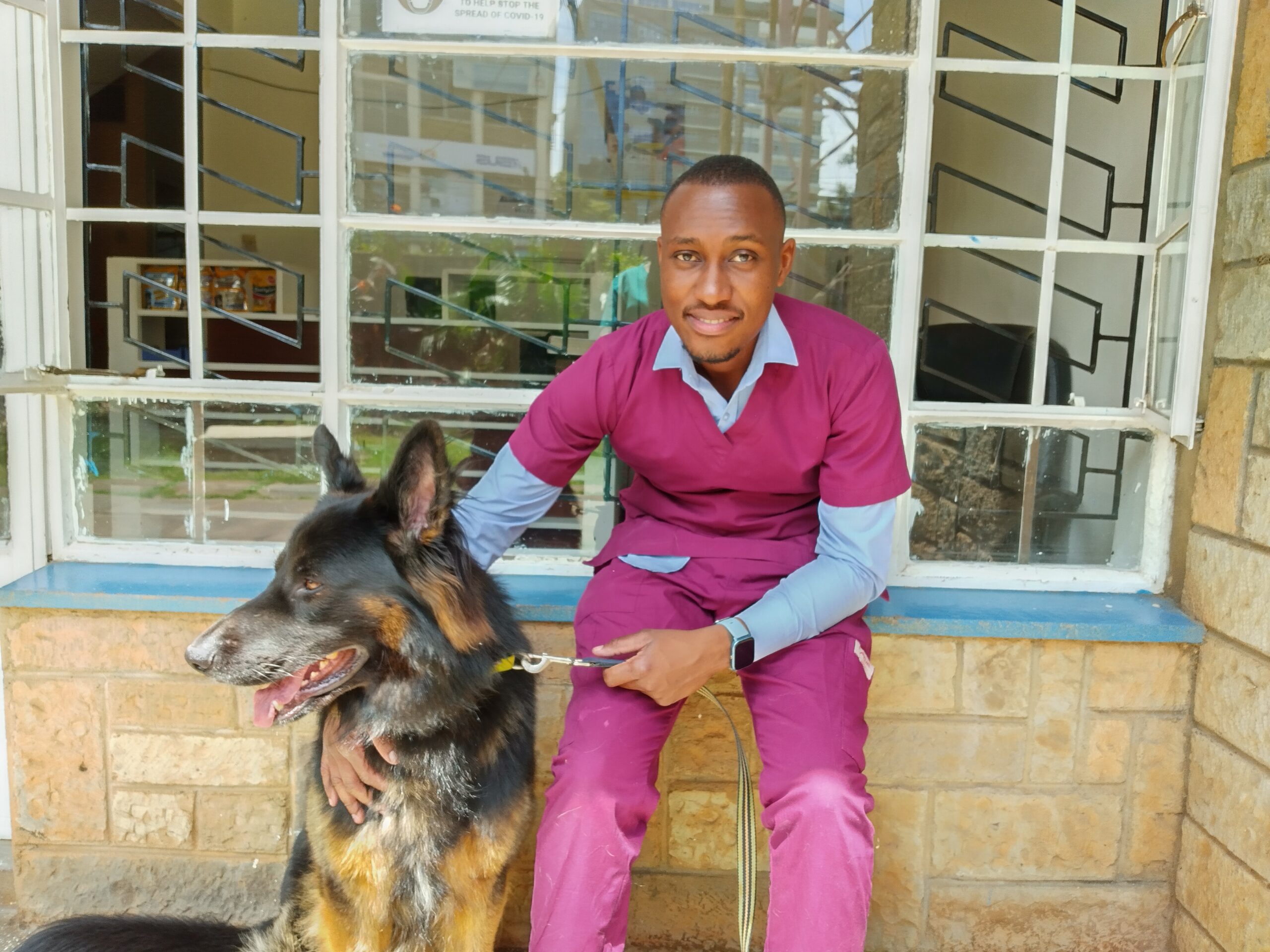Congrats! You’ve decided to take charge of your pet’s dental health and considered dog teeth cleaning at Ducknet Veterinary Clinic! Keeping your pet’s teeth and gums clean and healthy can help prevent periodontal disease and other serious health problems down the road. Several veterinary clinics in Nairobi provide teeth cleaning services services.
Here’s what you can expect when you go for dog teeth cleaning.
- Home Care Preparation:
- Get your dog used to having their mouth handled. Gently lift their lips and touch their teeth and gums regularly. This helps desensitize them to the sensation and prepares them for the dental scaling procedure.
- Introduce tooth brushing if you haven’t already. Use a dog-specific toothbrush and toothpaste. This helps maintain oral hygiene between dental cleanings.
- Provide dental chews or toys designed to help keep their teeth clean. Chewing on appropriate items can help reduce plaque buildup.
- Schedule an Appointment:
- Contact your veterinarian to schedule a dental scaling appointment. They will advise you on when it’s necessary based on your dog’s oral health.
- Pre-Appointment Instructions:
- Follow any specific instructions provided by your vet regarding fasting. They may recommend withholding food for a certain period before the procedure, usually overnight. Water is typically fine to leave out.
- Transportation Preparation:
- Get your dog accustomed to car rides if they’re not already. Some dogs may get anxious during car rides, so practice short trips to help them get used to it.
- Ensure you have a suitable carrier or restraint system for your dog in the car for safety.
- Vet Visit:
- On the day of the appointment, bring your dog to the vet clinic. Arrive on time to avoid any rush or stress.
- Inform the vet of any relevant medical history or concerns you have about your dog’s dental health.
- Be prepared to answer any questions the vet may have about your dog’s behavior or eating habits.
- During the Procedure:
- Your dog will likely be sedated or anesthetized for the dental scaling procedure to ensure their comfort and safety. The vet will monitor them closely throughout.
- The vet will use specialized instruments to remove tartar and plaque from your dog’s teeth, both above and below the gumline.
- They may also perform dental X-rays to assess the health of the teeth and surrounding structures.
- Post-Procedure Care:
- After the dental scaling, your dog may need some time to recover from the anesthesia. Follow any post-operative care instructions provided by your vet.
- They may prescribe antibiotics or pain medications if necessary.
- Provide soft, easily digestible food for the first few days after the procedure.
- Continue with dental hygiene efforts at home as recommended by your vet, such as tooth brushing and providing dental chews.
Importance of dog teeth cleaning
- Prevention of Dental Diseases: Just like humans, dogs can suffer from various dental issues such as plaque buildup, tartar accumulation, gingivitis, and periodontal disease. Regular dental cleaning helps prevent these problems from developing or progressing, leading to better oral health for your dog.
- Prevention of Bad Breath: Dental issues often result in unpleasant breath, which can be a sign of underlying dental problems. Routine cleaning helps keep your dog’s breath fresh and reduces the likelihood of halitosis.
- Pain Prevention: Dental problems can cause significant pain and discomfort for dogs. If left untreated, these issues can lead to more serious complications, including tooth loss and infections. Regular cleaning helps identify and address dental issues early, preventing pain and discomfort for your pet.
- Maintenance of Overall Health: Poor dental health in dogs isn’t just confined to the mouth. It can have systemic effects on other organs such as the heart, liver, and kidneys. Bacteria from dental infections can enter the bloodstream and spread to vital organs, potentially causing serious health problems. By maintaining good dental hygiene, you can help safeguard your dog’s overall health.
- Longer Lifespan: Dogs with healthy teeth and gums are likely to live longer, happier lives. Dental problems can significantly impact a dog’s quality of life and may even shorten their lifespan if left untreated. Regular dental cleanings, along with proper home dental care, contribute to a healthier and longer life for your furry friend.
- Early Detection of Other Health Issues: During a dental cleaning, veterinarians can often detect other health issues such as oral tumors, fractured teeth, or signs of systemic diseases like kidney disease or diabetes. Early detection allows for timely intervention and treatment, potentially saving your dog’s life.
- Improved Comfort and Behavior: Dental pain can affect a dog’s behavior and temperament. Dogs in pain may become irritable, withdrawn, or even aggressive. By addressing dental issues promptly through regular cleanings, you can help ensure your dog remains comfortable and happy.
By following these steps, you can help ensure a smooth and successful dental scaling procedure for your dog, whether performed at home or at the vet.







